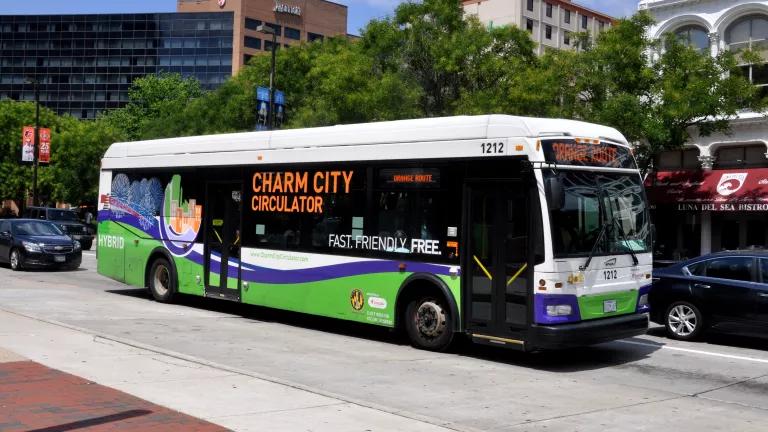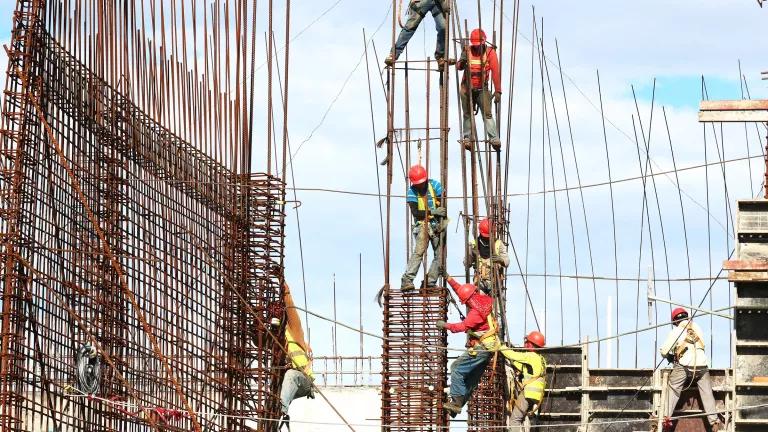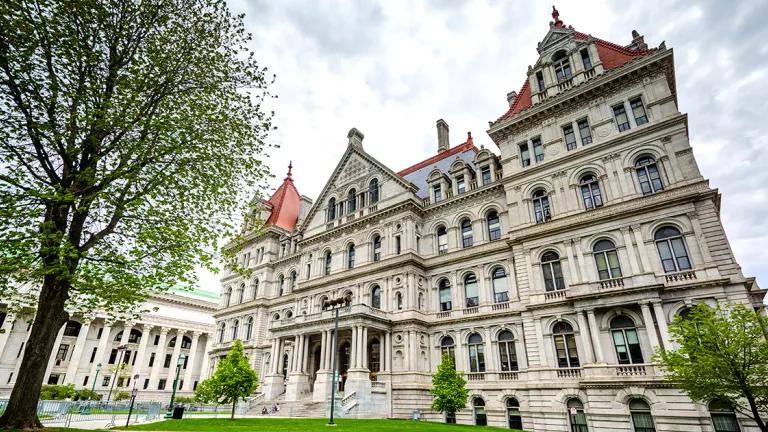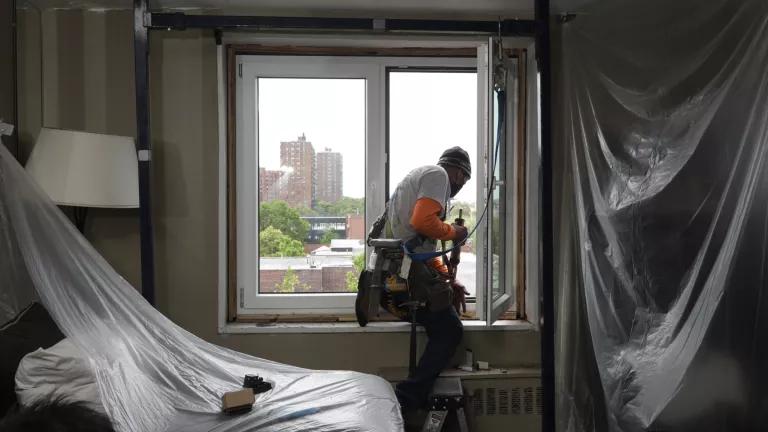Want to Clean Up Transportation? Come to Baltimore

Photo: BeyondDC via Flickr/Creative Commons
Do you want cleaner cars, safer roads, more bikeways and walkways, happier communities and lower lung-choking air pollution? Come to Baltimore on July 30. That’s where one of the most exciting environmental policy discussions in the country will take place. It’s part of a series of public workshops being held by the Transportation and Climate Initiative, or TCI. (If you can’t be there in person, the Baltimore workshop will be livestreamed via a link posted here that morning.)
What is TCI? It’s a coalition of 12 Northeast and Mid-Atlantic states and Washington, D.C. working together to ensure the region’s transportation is clean, modern, and equitable. That means getting people where they need to go—from doctors' visits to work, school, family, and other destinations—when they need to get there, affordably, while cutting tailpipe pollution from our current cars, trucks, and buses that causes asthma attacks and climate change.
Last year, a group of TCI states committed to develop a regional policy for low-carbon transportation. Such a policy is sorely needed, as our transportation vehicles emit more climate-altering carbon pollution across the Northeast and Mid-Atlantic region—and nationwide—than any other source, even power plants.
But we also need to transform our transportation system to address so much more. Who hasn’t been stuck in traffic or left waiting for a late bus or train on your way to an important appointment? Or inhaled a cloud of dirty exhaust from a diesel truck while on your bike, walking down the sidewalk, or behind the wheel?
Through a series of public listening sessions held across the region last year, the TCI states—Connecticut, Delaware, Maine, Maryland, Massachusetts, New Hampshire, New Jersey, New York, Pennsylvania, Rhode Island, Vermont, and Virginia—and D.C. heard these concerns, and now, they’re working to address them.
At the Baltimore workshop, the TCI states will present their current thinking on how best to invest in clean and modern transportation solutions in urban, suburban, and rural communities across the region; hear ideas from experts in the field; and solicit public input.
As NRDC’s Transportation Reimagined report shows, there are numerous opportunities to deploy proven and effective solutions in the TCI region, and nationwide. These include walkable and bikeable streets; accessible and affordable public transportation, such as expanded rural bus routes, bus rapid transit systems, and more efficient commuter trains; equitable, transit-oriented development and housing; and clean, electric vehicles, including cars, buses, and trucks powered by renewable energy from the wind and the sun.
As the TCI states look to deploy such solutions, it is critical they ensure the benefits—cleaner air, more livable communities, economic growth, and new job opportunities—are felt by communities that are already most burdened by pollution from our current transportation, most vulnerable to and experiencing the effects of climate change, and least-well-served by our current transportation networks.
In the months ahead, the TCI states will continue developing a policy framework to move the region’s transportation forward. They’ll evaluate how to make the most progress quickly while setting up the region for long-term success. They’ll explore how to build on, improve, and adapt successful policy frameworks already in place. By the end of the year, the states will roll out their proposal, and get to work on building and revitalizing our transportation for the 21st Century.
That’s good news for residents, and exciting news for the future of the region. Baltimore’s the place to be to get us on the right road to a cleaner world.



